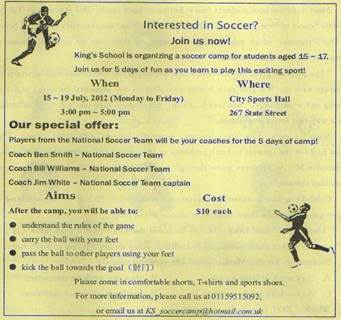Books for Children
| Fleabag and the Ring's End Beth Webb More stories of Fleabag, the talking cat—star of this wonderful set of 3 books. Ages 8—13, 208 pages, paper-back 07459 44116, £3.99 | The little White House Elizabeth Goudge A fairy tale and winner of the Carnegie Medal. Ages 8—12, 240 pages, paper-back 07459 45783, £4.99 |
| My Very First Christmas Book Lois Rock and Alec Ayliffe A big, bright book, which presents the story simply, and delightfully for very young children. Ages 0—3, 12 pages, 200mm x 200mm, board 07459 40560, £4.99 | First Festival: Christmas Lois Rock An all-in-one book to help grown-ups and children prepare their Christmas celebration together. Presents, activities and customs. Ages 5—8, 48 pages, 290mmx250mm, hardback 07459 39074, £8.99 |
| Star of Wonder Pat Alexander A wonderful collection of Christmas stories and poems. Full of lively pages to read and enjoy. Ages 7—12, 224 pages, paperback 07459 39323, £4.99 | The Not-So-Wise Man Alan MacDonald and Andrew Rowland We all know about the 3 Wise Men who traveled to Bethlehem(伯利恒)and discovered the baby Jesus Christ. This is the tale of another one, who always missed the point. Ages 5—9, 32 pages, 270mm×210mm, hardback. 07459 38922, £8.99 |
- 1.
If you want to make a Christmas plan together with your children, which book do you prefer?
- A.Star of Wonder
- B.The Not-So-Wise Man
- C.First Festival: Christmas
- D.My Very First Christmas Book
- A.
- 2.
Which number would you dial if you want to order a book for your 2-year-old child?
- A.07459 40560
- B.07459 38922
- C.07459 45783
- D.07459 44116
- A.
- 3.
If your child wants to read stories of animals, whose book will be your choice?
- A.Pat Alexander
- B.Beth Webb
- C.Lois Rock
- D.Elizabeth Goudge
- A.
| Some interesting animals | Food |
| People in India think the cow (奶牛)is the mother of the earth. It gives so much but asks nothing in return. So in many Indian cities, people don’t eat or sell beef. Cows in India can walk free(免费) with the cars. | Grass |
| The zebra斑马belongs to属于 the horse family. They live in southern and central Africa. Zebras have excellent hearing and eyesight and are capable of running at speeds 速度of up to 40 miles per hour. | Grass |
| The kangaroo is the symbol of Australia. They can’t walk. They use their strong back legs to jump. They can jump over 56 kilometres each hour. They can go over nine metres in one jump! | Gum trees |
| The polar bear lives in the snow and ice. It is 3 metres long and it weighs重 450 kilos. It can stand up on its back legs because it has very wide feet. It can use its front legs like arms. It can swim well. | Sea animals |
- 1.
_________ is a member of the horse family
- A.The cow
- B.The zebra
- C.The kangaroo
- D.The polar bear
- A.
- 2.
The kangaroo can’t walk with its legs, but can________
- A.fly
- B.swim
- C.jump
- D.run
- A.
- 3.
If you walk in the street, you can meet a cow in________
- A.China
- B.Australia
- C.Africa
- D.India
- A.
- 4.
The polar bear lives on _______
- A.sea animals
- B.grass
- C.beef
- D.gum trees
- A.
- 5.
“In return” in the sentence “It gives so much but asks nothing in return” means ______in Chinese
- A.归还
- B.回报
- C.轮流
- D.要求
- A.
What problems do the teenagers probably have? Here is a survey showing their main problems.
| Problems | Causes | Advice |
| Feeling Stressed | Too much homework. Not having enough time for their hobbies. | Make a plan for study and hobbies. Find time to relax as possible as you can. |
| Getting short-sighted(近视) | Too much homework. Bad reading and writing habits. | Do homework or reading in a correct way. |
| Fights | Not knowing how to get on well with classmates. | Make more friends and understand each other. Share your problems with them. |
| Feeling tired of study | Computer games’ bad influence. | Don’t be crazy about computer games. Play them just for a short time when you are tired. |
| Getting fat | Having more pocket money to buy snacks; Dislike doing exercise. | Use your pocket money to do something meaningful. Spend some time doing exercise every day. |
- 1.
How many main problems are there in the survey?
- A.Four
- B.Seven
- C.Six
- D.Five
- A.
- 2.
What problems are caused by too much homework?
- A.Feeling stressed and getting short-sighted
- B.Feeling stressed and fighting with classmates
- C.Feeling tired of study and getting fat
- D.Getting short-sighted and feeling tired of study
- A.
- 3.
________ is a good way for the teenagers to stop fights
- A.Doing less homework
- B.Paying no attention to each other
- C.Learning how to make friends
- D.Playing computer games
- A.
 30 (for a child)
30 (for a child)